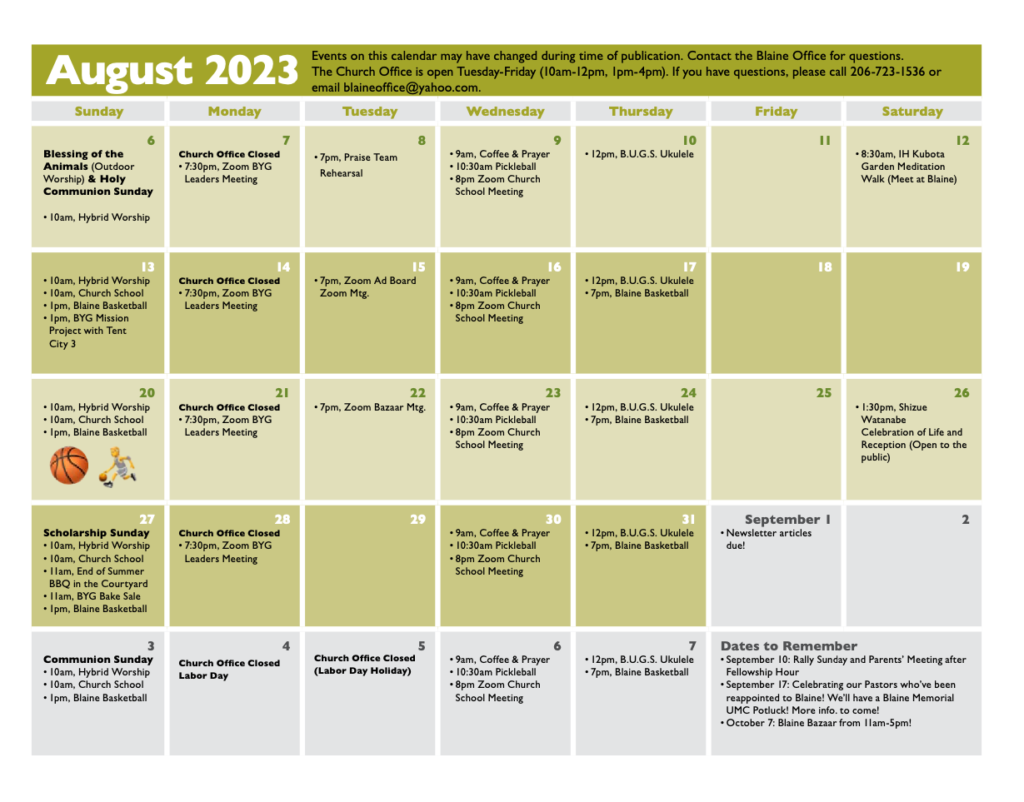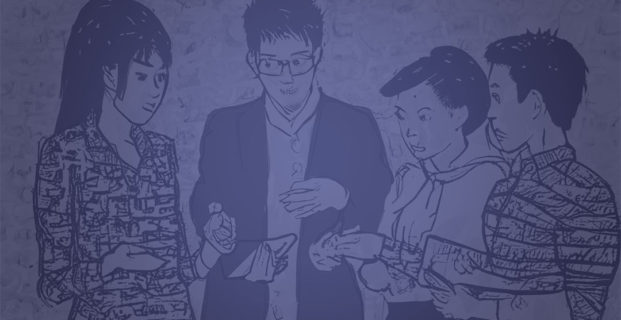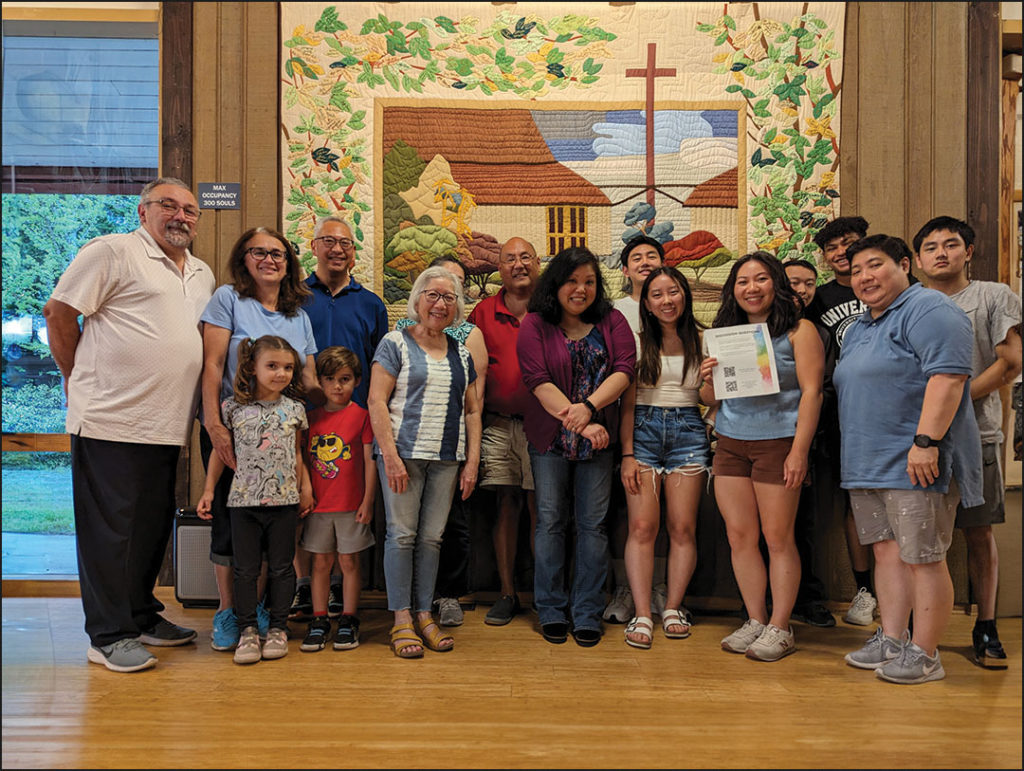
Continuing talks, connections
By Lynne Onishi
This summer has been full! June and July were jam-packed with activities, youth camps, hikes, and film screenings. I also attended our Pacific Northwest Annual Conference Session in mid-June, celebrated Pride Sunday with other Seattle-area reconciling UMC congregations and attended my first Minidoka pilgrimage. I’ve also been inundated with a series of Supreme Court rulings that have devastating consequences for young people of color, students of all ages, and queer folks. It’s been joyful, frustrating, uplifting and exhausting all at once.
Amid all this, I’ve been thinking a lot about how the Church often fails to connect with young people. My conversations with Blaine young adults, my fellowship cohort in DC, and other ministry colleagues across the country have led me to question the way the Church often frames these struggles. I see churches asking, “How do we attract more young people? How do we convince young people they need the church? How do we get young people to commit to the church?” Though these are valid questions to ask, I don’t think they get to the heart of the matter.
I’d like to see the local church asking more self-reflective questions, like: “What’s the role of the local church? What is the purpose of our particular church community in this neighborhood at this time in history?” Once a church can identify its context and solidify its calling, it can begin to ask different questions. For example, a church may discern that their purpose is to foster community and connect people to the Divine. They may identify that they have a unique calling to be multi-generational, but they are missing a generation of young people. Instead of assuming young people need the church, what if the church asked young people what they needed? The church could ask young people how they want to be welcomed into community or how they connect with God. This leads to an entirely different model of ministry that’s rooted in the local church’s identity and purpose but doesn’t make incorrect assumptions about young people.
During our PNW Annual Conference session in June, I listened along as Bishop Cedrick Bridgeforth boldly proclaimed that the Church is getting out-churched by other organizations and groups that are reaching young people far more effectively. And I must agree. There’s so much the Church can learn from other communities. The Innovation Hub team at Blaine Memorial is in a unique position to listen to the needs of young people, learn from other community organizations, and find ways for the church to provide for these needs. But we hope this spreads beyond our small team. To sustain the goodness happening at Blaine Memorial, we need to begin asking different questions on a church-wide, neighborhood-wide, community-wide scale!
The IH team and RM Task Force are always looking for new folks to join us. If you feel called to lend your voice to these important ministries, we invite you to join us at our next team Zoom meeting. Please contact Lynne or any of the other team members for more information.
Our Innovation Hub film ministry and Reconciling Ministries teams hosted a documentary and discussion event. We watched the film “UnUnited: Fighting for LGBTQ Inclusion in the United Methodist Church,” which chronicled the story of the 2019 General Conference. The film included several interviews with United Methodist pastors and church leaders from across a spectrum of viewpoints. We learned about the UMC’s struggle to include and advocate for LGBTQIA+ persons, and we had thoughtful discussions about our role as a United Methodist congregation.
Contact Lynne Onishi (lynneonishi@gmail.com) with questions about the Innovation Hub team or Reconciling Ministries.
Bazaar 2023 is coming!
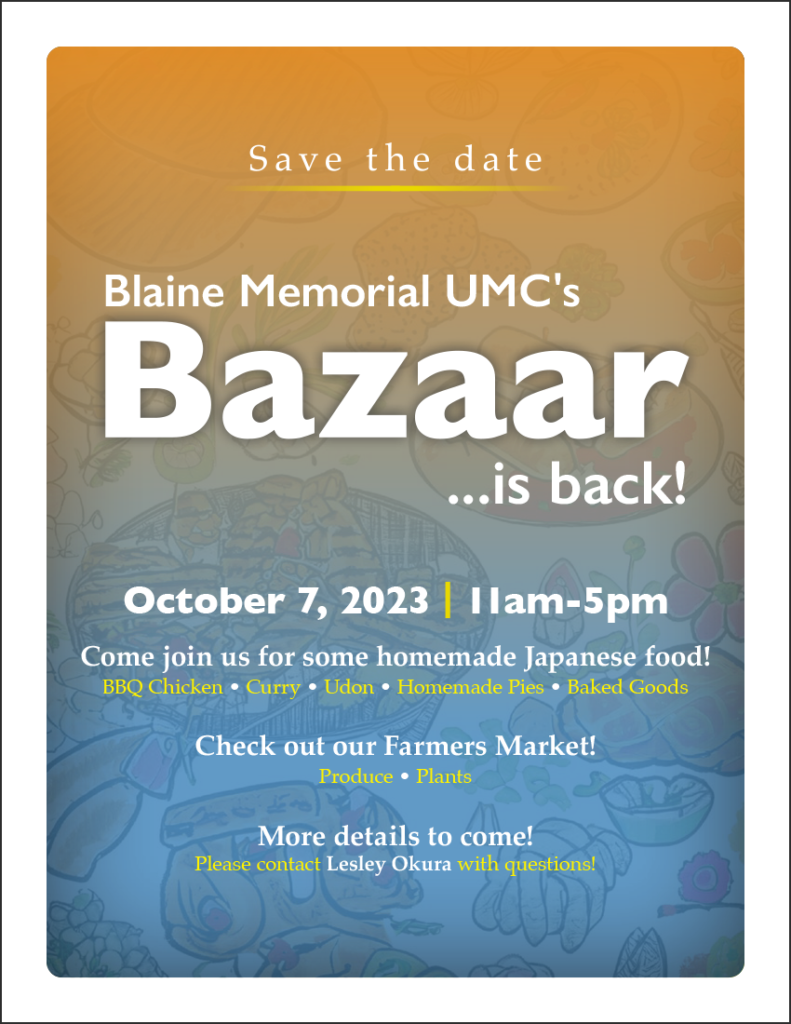
Read the latest issue of the Beacon!
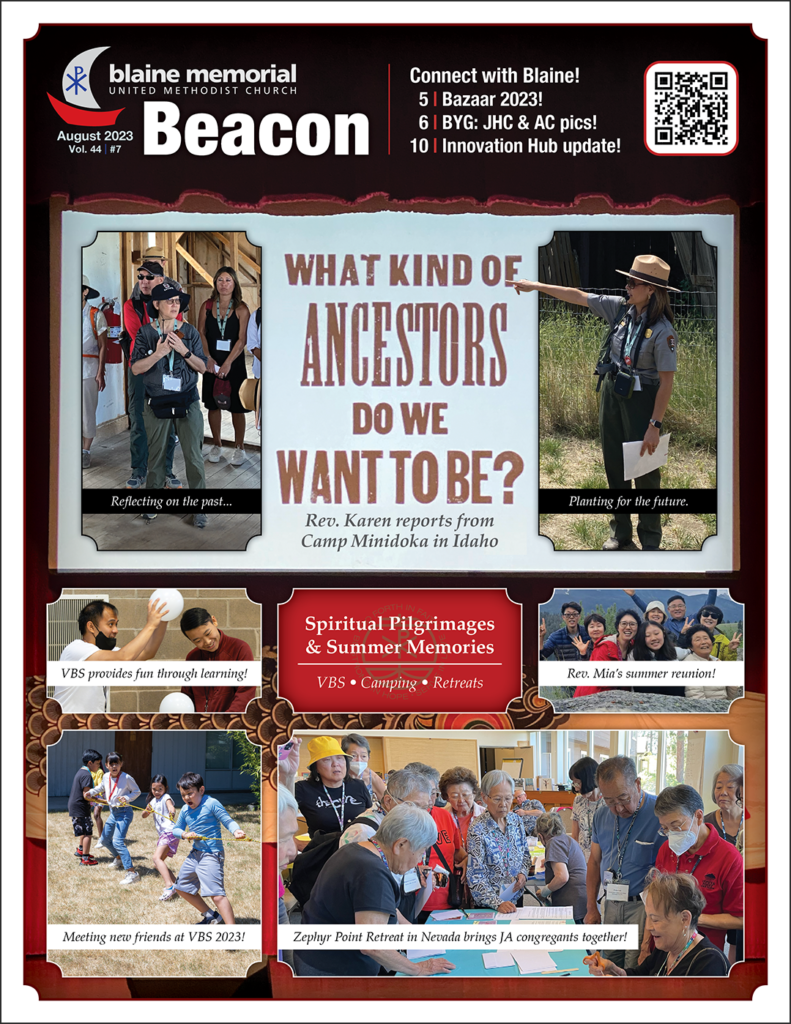
View this month’s calendar!
